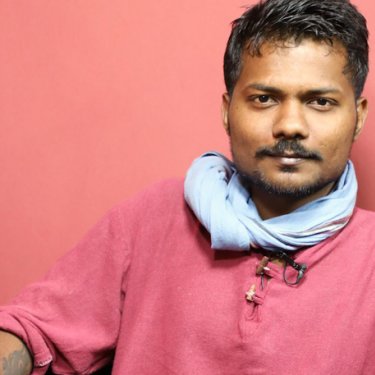RSF’s calls for release of Indian journalist jailed over tweet

Reporters Without Borders (RSF) calls for the immediate release of Prashant Kanojia, an Indian freelance journalist who is to appear in court next week and is facing the possibility of 28 years in prison for a retweet he quickly deleted after realizing the original had been faked. All of the insane charges against him must be dropped, RSF says.
Kanojia was arrested at his New Delhi home on 18 August by police from Lucknow, the capital of the northern state Uttar Pradesh, who took him back to Lucknow to face trial for a retweet that remained online for minutes but which, according to the police, could “disturb communal harmony” and “hurt religious sentiments.”
What Kanojia retweeted and then deleted was a tampered version of a Facebook post showing a photo of Sushil Tiwari, the leader of a small far-right, anti-Muslim group called the Hindu Army. In the original post, the photo was accompanied by a message calling for Islamic studies to be replaced by Vedic studies in the programme for civil service entrance exams.
In the tampered version that began circulating on Twitter, the message had been replaced by one calling for members of low castes and ethnic minorities to be banned from a temple to the Hindu deity Rama in Ayodhya, a city in Uttar Pradesh. This ban should be opposed, an added message said.
Judicial harassment
For briefly retweeting this, Kanojia is charged with violating no fewer than nine penal code articles, for which the combined maximum sentence is 28 years in prison. The police are even accusing him of violating Section 66A of the Information Technology Act, although the supreme court ruled that it was unconstitutional in 2015. Kanojia is due to appear in court in Lucknow for a bail hearing on 19 October.
“We urge the judges of the court in Lucknow hearing the case to order the immediate and unconditional release of Prashant Kanojia, who should definitely not be in prison,” said Daniel Bastard, the head of RSF’s Asia-Pacific desk. “This case is an intolerable example of judicial harassment designed to silence a journalist regarded as overly critical of the authorities. The insane charges brought against him over a mere tweet must be dismissed at once.”
As well as an outspoken critic, Kanojia is also a “Dalit” – a member of the caste formerly referred to as “Untouchables” – and he is originally from Uttar Pradesh.
“The tweet was an excuse,” Kanojia’s wife, Jagisha Arora, told RSF, referring to the authorities in Uttar Pradesh. “He was their target. They were waiting to frame him in some way or another. He has been a fearless critic of the government and a voice to the marginalized communities, including the Muslims and Dalits.”
Journalism – forbidden profession
Another recent example of the harassment to which Kanojia has been subjected is the charge brought against him last April for “objectionable remarks” on social media criticizing Prime Minister Narendra Modi and Uttar Pradesh chief minister Yogi Adityanath for their handling of the coronavirus lockdown.
Kanojia was already arrested in 2019 for sharing a video mentioning Adityanath. Many observers think he is being harassed because he is a Dalit and that, as such, he should not allowed to work as a journalist.
“Caste is definitely a factor,” Arora said. “That he is a Dalit makes him more vulnerable. There are very few Dalit journalists in Indian newsrooms. He is one of the very few who are known for their work.”
RSF had occasion as recently as last week to condemn the attitude of the police and authorities in Uttar Pradesh, who don’t like being criticized by journalists and arrest some from time to time in order to intimidate the rest of their colleagues.
The view is shared by almost 1,000 civil society activists and academics who, in a joint appeal last week for Kanojia’s release, said it fitted a “larger pattern” of attempts by the Uttar Pradesh administration to “silence dissenting voices.”
India is ranked 142nd out of 180 countries in RSF's 2020 World Press Freedom Index.



